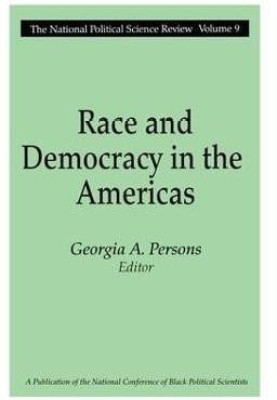Race and Democracy in the Americas(English, Paperback, unknown)
Quick Overview
Product Price Comparison
Race and Democracy in the Americas examines dimensions of the comparative dynamics of race and ethnicity, with a directed focus on the Americas, most particularly Brazil and the United States. Brazil and the United States are two countries in the Americas that have been major hosts for the African diaspora. Both countries experienced prolonged enslavement of Africans and both now claim to be beacons of democracy for much of the developing world. Both Afro-Brazilians and African Americans have fielded major liberation movements against racism and oppression yet both groups continue to experience considerable residual racial discrimination and displacement. Brazil and the U.S. remain racialized societies though both officially purport to be otherwise. The chapters of this volume illuminate a common search for understanding how race operates in societies generally, and how shapes life opportunities for African Americans and Afro-Brazilians, both oppressed by this most detrimental social construction. The project that fueled this volume represented a rare opportunity for collaboration between Afro-Brazilian scholars and their African American counterparts. This volume offers a passionate conversation between colleagues who have endured common sociopolitical and cultural struggles, but who have only belatedly been able to meet and connect as individuals. Both groups share identities as scholars and activists, for neither identity alone is sufficient to nourish the longings of their hearts nor of their consciences. This volume also represents an all too rare opportunity to give voice and expression to the work of Afro-Brazilian scholars. Volume 9 of the National Political Science Review also carries a special tribute to Mack Henry Jones, a senior black political scientist retiring from Atlanta University and honors Jones's legacy and continues his quest for understanding the nature and intricacies of oppression and possible paths to liberation. This essential work will be of particular interest to ethnic studies specialists, African American studies scholars, political scientists, historians, and sociologists.


